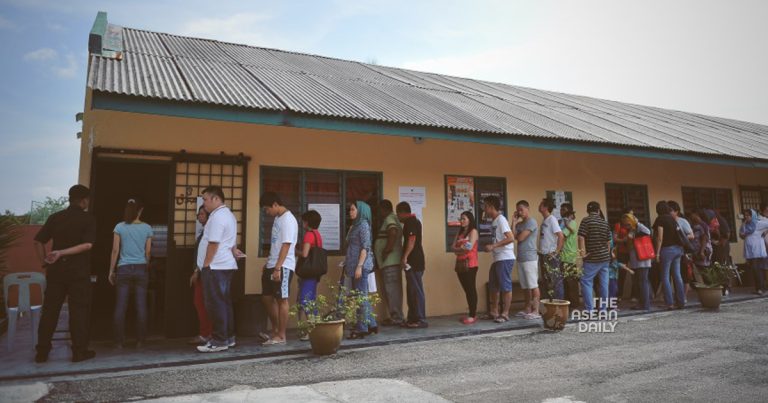12-8-2023 (KUALA LUMPUR) As the polling booths closed at 6pm on Saturday (August 12), the count began in Malaysia’s six state elections, with unofficial results streaming in, indicating no significant surprises at this juncture.
Preliminary outcomes reported by Free Malaysia Today highlight the ruling Pakatan Harapan-Barisan Nasional (PH-BN) coalition leading in Selangor, Penang, and Negeri Sembilan—states defended against the opposition Perikatan Nasional (PN) alliance. Conversely, the PN coalition maintains a lead in its stronghold of Kedah, though no results are available yet for Terengganu and Kelantan, both PN-controlled states.
In Negeri Sembilan, Anthony Loke, Malaysia’s transport minister and secretary-general of the Democratic Action Party (DAP), a key member of the ruling coalition, reportedly secured victory in the Chennah seat, prevailing against PN’s Mr Rosmadi Arif.
Reports suggest that PN has successfully secured four out of 36 seats in Kedah, where it currently holds incumbency. Meanwhile, early indications reveal that PH has emerged victorious in three seats in Selangor’s 56-seat state assembly, including Pandamaran, Bandar Baru Klang, and Banting. Similarly, PH reportedly clinched nine seats in Penang’s 40-seat state assembly, with DAP chairman Lim Guan Eng securing the Air Putih seat.
The resounding win continues as BN’s Mohamad Hasan, also Malaysia’s defense minister, triumphed in the Rantau seat (Mohamad Hasan) in Negeri Sembilan, previously held by PH-BN. BN is said to have secured three other seats in the state.
The political drama unfolds as the media converges at the World Trade Centre in Kuala Lumpur, where PH-BN leaders anticipate gathering to closely monitor the live state election results. Notable figures like Prime Minister Anwar Ibrahim and Deputy Prime Minister Ahmad Zahid Hamidi are expected to attend.
On the flip side, PN leaders are set to convene at the Concorde Hotel in Shah Alam, Selangor, for their results viewing event.
The voting process opened at 8am and concluded at 6pm, during which up to 9.7 million eligible voters cast their ballots among the 570 candidates vying for the 245 seats across the six states.
Initially, data from the Election Commission indicated a slow start in the polling activity across the six states, with less than half of eligible voters participating by noon. As the clock approached 4pm, just two hours prior to the polling booths shutting, voter turnout notably surged.
The peaceful voting process was underscored by the smooth flow and absence of substantial delays, as affirmed by voters who shared their experiences. The closely watched state elections saw last-minute attempts by coalition leaders to sway the electorate through policy announcements, promises, and even warnings. The final campaign rallies hosted by Prime Minister Anwar and Muhyiddin were held in Kedah and Selangor, respectively. Amid thousands of supporters, Anwar promised “financial incentives” for various segments of the population, while Muhyiddin outlined PN’s vision for Selangor’s future.
Experts have projected that while the status quo might endure after the polls, PN could gain more support in its strongholds. While the unity government alliance is anticipated to retain control over Penang, Negeri Sembilan, and Selangor, analysts predict that PN could secure additional seats in these regions. PN is also expected to comfortably prevail in Kelantan, Terengganu, and Kedah, where it is the incumbent, possibly putting pressure on the government to adopt more right-leaning policies.
As the unofficial results continue to trickle in, Malaysia remains in the spotlight as the nation awaits a clearer picture of the state election outcomes and their potential implications.




